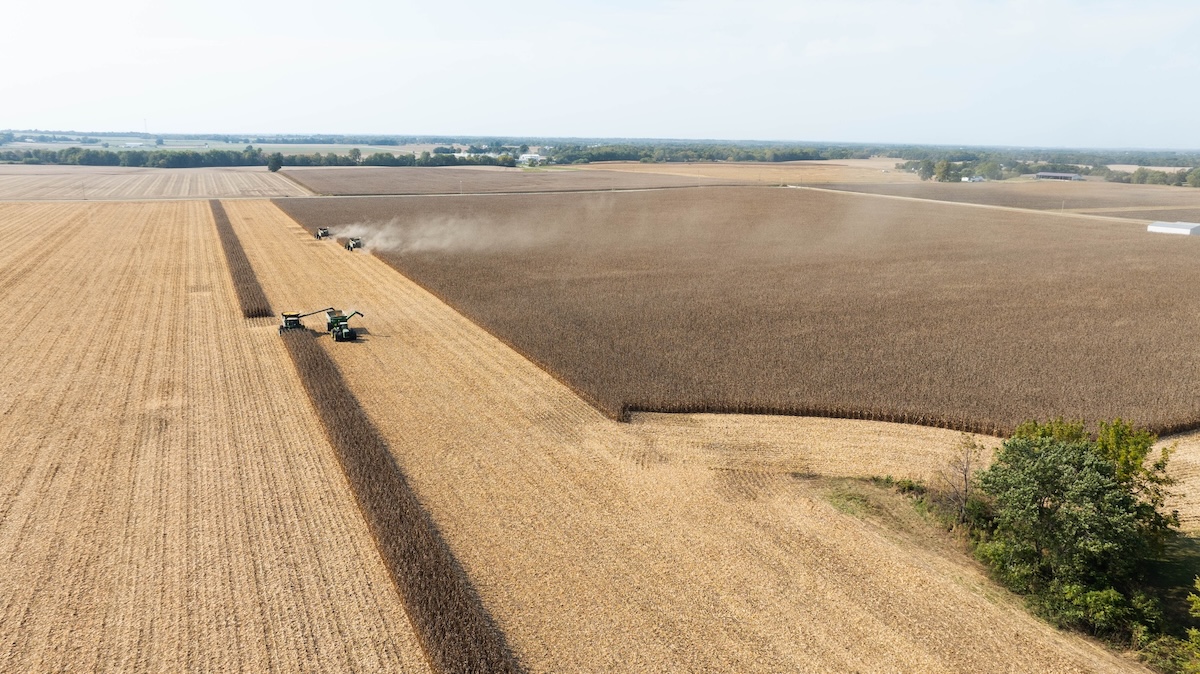
Investing in Agricultural Real Estate: Pros and Cons to Consider
Investing in agricultural real estate offers great opportunities.
Those considering an agricultural real estate investment should think about the pros and cons of farming investments. This involves real estate investment analysis, choosing a farming discipline for you, and buying a property that’s compatible with all factors involved. Here are the advantages, disadvantages, and a few starter tips to consider when buying farmland.
Editor’s Note: This is not financial, investment, legal, or real estate advice. Consult with a financial planner, investment specialist, real estate lawyer, and real estate professional before buying or selling real estate.
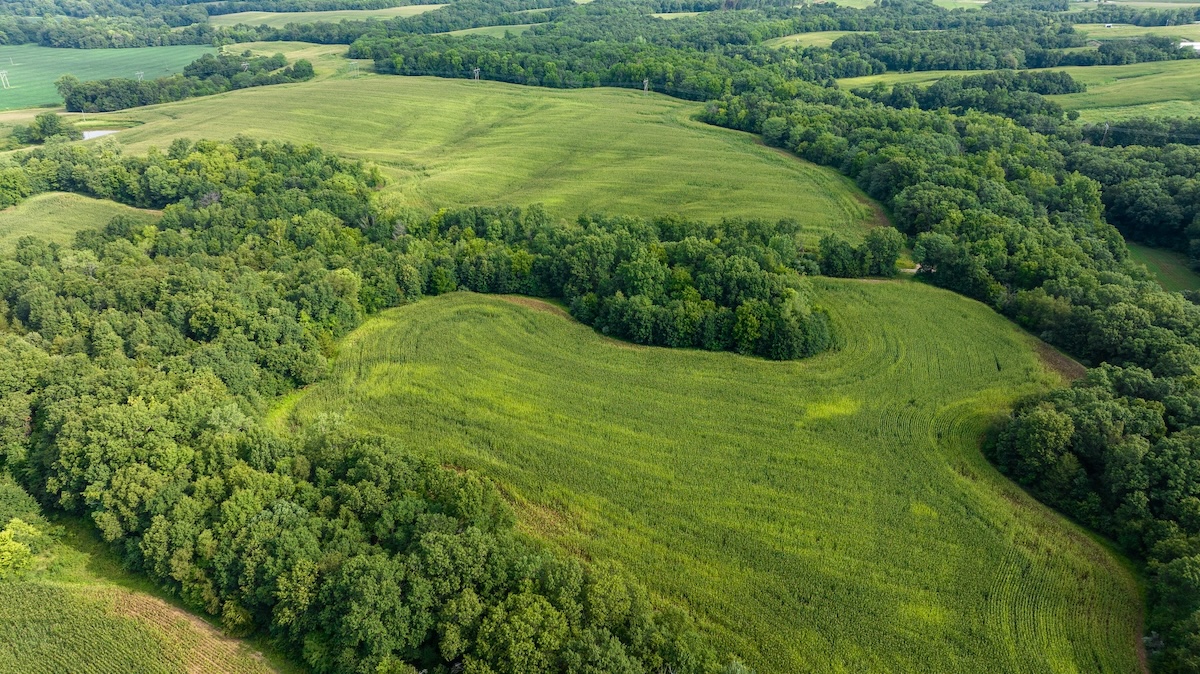
Investing in ag ground comes with clear advantages.
Pros of Investing in Agricultural Real Estate
There are many advantages of investing in agricultural real estate. Investment diversification, investment hedging, land appreciation, passive income, and legacy creation, are but a few examples. Consider the following pros when making the decision to invest in farmland.
Diversification in Investments: Most investors place money in the stock market. Stocks, bonds, ETFs, and mutual funds are popular selections. Some might even invest in gold, silver, platinum, palladium, and other precious metals. It’s even common to invest in commodities, such as oil, natural gas, etc. But land provides a quality investment option for individuals to diversify their portfolio.
Safer Long-Term Investing: While no investment is guaranteed, land has a proven track record of consistent performance. Its reliable price increase over time, and recent spikes to the positive over the past two decades, make it an excellent place to park cash.
Reliable Land Appreciation: Over time, land has virtually always increased in value. Historically, this reliable land appreciation has made land a solid investment option.
Hedge Against Inflation: Inflation has increased, resulting in an ever-weakening dollar, over the course of American history. Because of this, the same amounts of cash, one part left sitting in a bank account for 30 years, and an equal sum invested completely in land for the same duration, look vastly different. This is due to inflation. Investing capital in land hedges against inflation.
Hedge Against Other Markets: The same is true for other markets. Investing in land is a common hedge against other markets, such as stocks, bonds, commodities, etc. Simply, land provides investors with another option.
Option to Farm Your Land: Owning agricultural land provides you with the ability to farm it yourself. Row crops, livestock, produce, and more, these are examples of what can be done when owning farmland. Find what interests you, tap into markets with good projections, and live the dream.
Common Government Program Incentives: Some landowners might benefit from common government programs. Sometimes, these provide incentives or subsidies that provide funds and other types of assistance to landowners.
Potential Passive Income: Many landowners choose to not work the land themselves. Instead, they lease out their farmland to other farmers. This gives them the ability to earn passive income, effectively allowing them to focus their time elsewhere and still generate revenue from the land.
Probable Recreational Value: A significant percentage of agricultural lands also hold recreational value. They might have timber for wildlife, ponds for fishing, river access for kayaking, trails for hiking, and much more. This is a recreational value you can enjoy. Or it can be leased out to others for additional income.
Better Passing Down of Wealth: Land is often a part of estates. Landowners regularly pass down their rural real estate holdings to their heirs. Of course, with things such as “trusts” and “stepped-up basis,” heirs can inherit real estate with minimal tax implications.
Creation of a Legacy: Land can be a significant part of family legacies. Throughout time, land has been a major part of heritages big and small. Today, the same is true, and it can be a part of your personal and family legacies. Create the start of it by buying rural real estate.
While other advantages of investing in agricultural real estate abound, the above factors are reason enough to pull the trigger on a quality purchase. Keep these in mind when weighing the pros and cons of your next investment decision-making process.
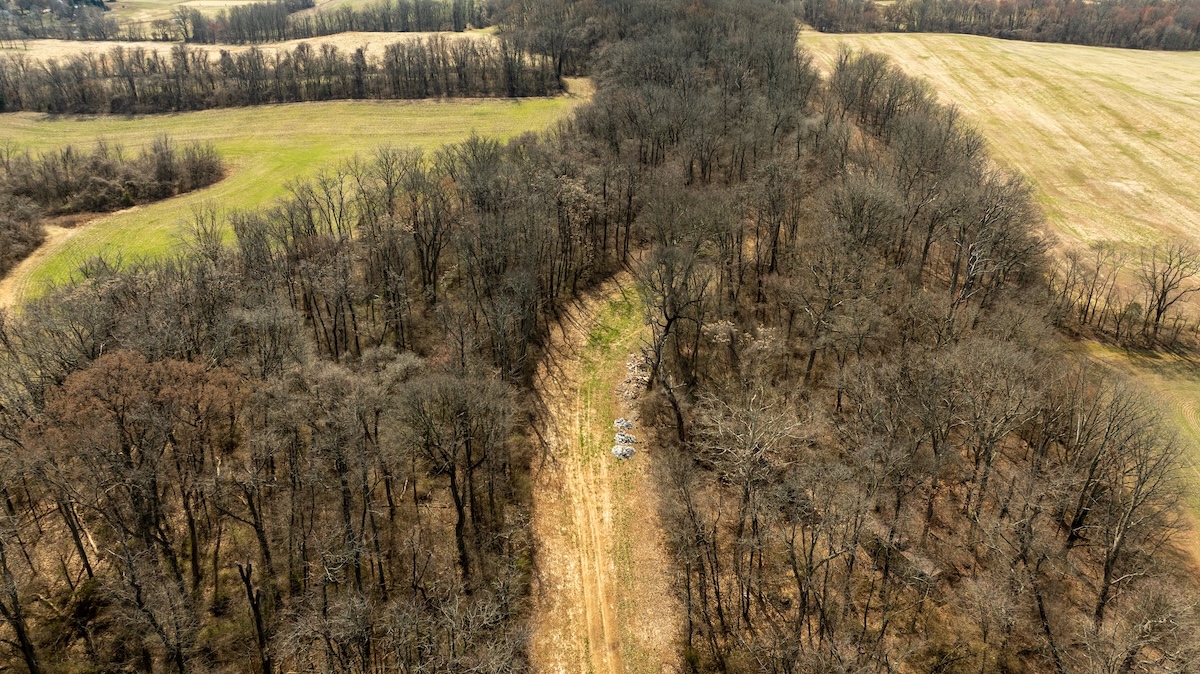
Investing money in land comes with a few disadvantages for some who might need liquidity and other things.
Cons of Investing in Agricultural Real Estate
Despite more positives than negatives, there are some barriers and drawbacks to investing in agricultural real estate. Some of these include less liquidity, interest rates, property taxes, etc. Factor in the following cons when considering investing in farmland.
Less Liquidity: Land purchases take time. Likewise, selling farmland does, too. Oftentimes, it’s weeks, but more often months, to find a buyer and complete the sale. This makes land investments less liquid than say, a stock or bond, which can be sold significantly faster.
Significant Up-Front Capital Requirements: Land prices continue to rise, which for some, can create a barrier of entry. This significant up-front capital requirement prevents many from owning farmland. That said, after saving enough for a down payment, or after saving for the entire purchase, you’ll feel good knowing you worked hard to make it a reality.
Undesirable Interest Rates: In the past year or so, interest rates spiked (compared to the several years prior). Historically speaking though, interest rates are still relatively low and remain vastly lower than all-time highs in the early 1980s.
Rising Property Taxes: Like other costs, property taxes continue to increase. This is a cost that must be considered and factored when considering buying real estate of any type. In areas with higher valuations, property taxes can quickly become significant expenditures. Fortunately, income generated from many properties greatly surpasses property taxes and other land expenses.
Expensive Property Upkeep: Some properties require more upkeep than others. Annual maintenance costs vary from property to property, but this is something to think about when considering a land purchase.
Time-Consuming Property Tasks: Those who plan to farm their lands might have some time-consuming tasks on their hands. Of course, those who lease the farming rights out to another farmer might have many of these jobs completed by the lessee.
Pesky Zoning Regulations: Some areas are regulated by local zoning laws. This impacts how lands can be used, values of the land, price of property taxes, and more. If zoning regulations are part of the equation, be sure they’re acceptable for your plans.
There are a few additional cons, including possible market fluctuations, unpredictability of Mother Nature (and associated property damage), and others. That said, in most situations, and for many investors, the advantages of owning land greatly outweigh the negatives.
Additionally, many of the above “cons” aren’t all that bad. For example, interest rates are higher, but still quite low historically speaking. Revenue from farms greatly outpaces property taxes. And zoning regulations won’t apply to most agricultural areas.
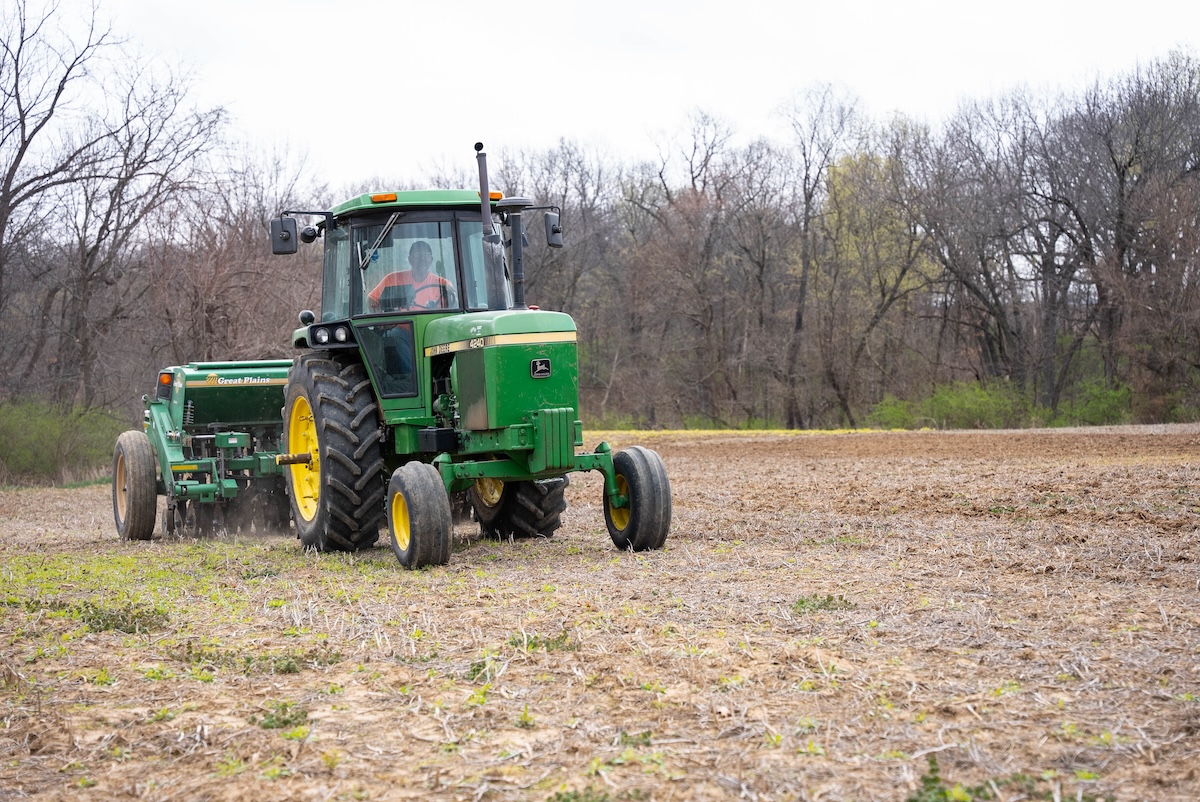
Starting a farm can be a rewarding adventure.
Steps to Starting a Farm
Those who haven’t farmed, but hope to, will need to complete numerous tasks. While the following isn’t nearly an exhaustive list, it highlights key things to check off when starting a new farm.
Start by educating yourself. Farming is no simple occupation. Actually, it requires extensive knowledge in many different fields of study (i.e.: farming, mechanics, and other work). So, start by learning as much as possible, especially in the specific areas you plan to operate in.
Next, generate a farm business plan. This will help craft a deliberate direction, and will be important in securing finances, staying on task, and more. As alluded, visit various lenders and secure financing. Find the best possible interest rates for the farm loan.
After that, consult with a reputable real estate company, and find a knowledgeable Land Specialist, such as those with Ranch and Farm and Whitetail Properties. They will help find the right piece of land for you and your goals. Notably, finding the right piece of land will vary based on what you need and plan to do.
Once you find the right property, it’s time to buy important equipment, implements, and other necessary items. Consider reputable brands, such as John Deere, Quick-Attach, and more.
Of course, you’ll either do the work yourself, or hire individuals to work the farm. Make that decision. Then, plan accordingly.
Finally, learn how to raise, harvest, market, and sell your agricultural products. Each area of agriculture is vastly different from one to the next. Over time, become proficient, even distinguished, in your area of focus.
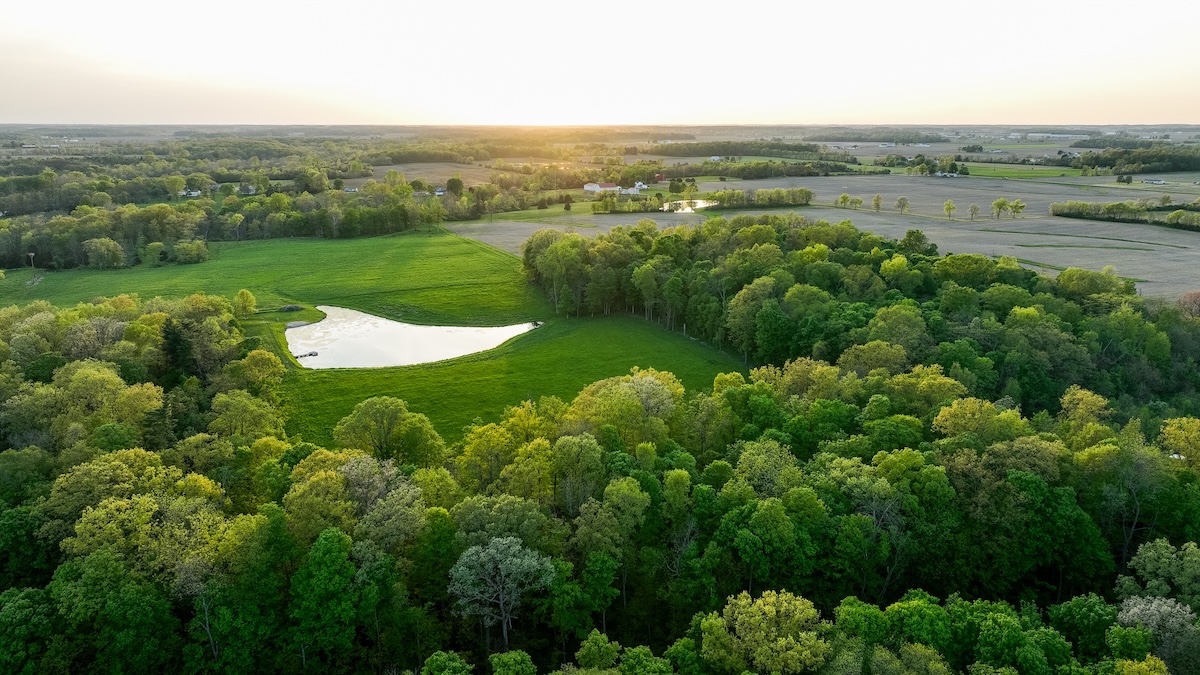
Real estate just might be the right choice for you.
Making the Decision to Invest in Real Estate
So, is it time to invest in agricultural real estate? It just might be, but only you can make that call. Think about all relevant factors, analyze your finances, consider the variables, and make the decision. Whatever that looks like, make sound moves with knowledge and principle, and odds of success increase.
Those who aren’t interested in agricultural land might be interested in other forms of rural real estate. For example, country homes, residential homes, recreational land, timberland, undeveloped land, and more, are great sectors of the market, too. Regardless, if it’s time to buy land, contact Ranch & Farm today.
For landowners looking to sell at auction, contact Ranch & Farm. We can answer questions and help with your auctioneering needs.
Published on 2025-05-09